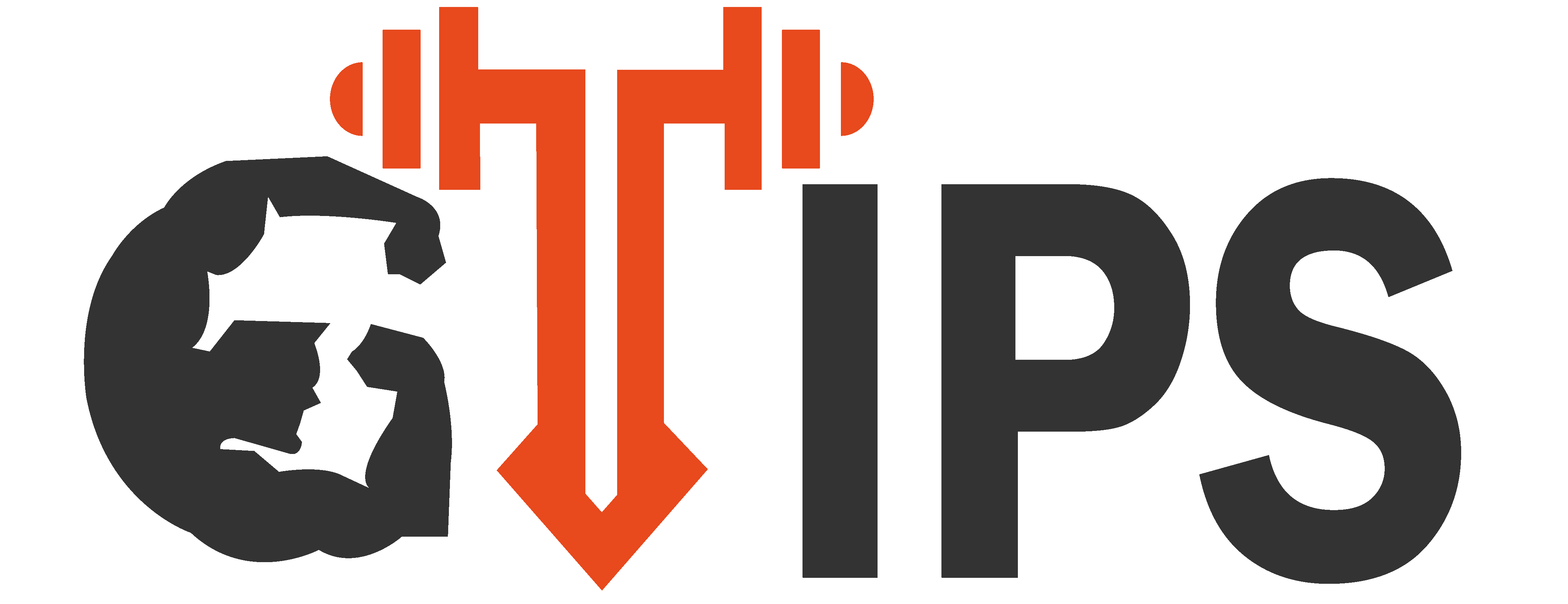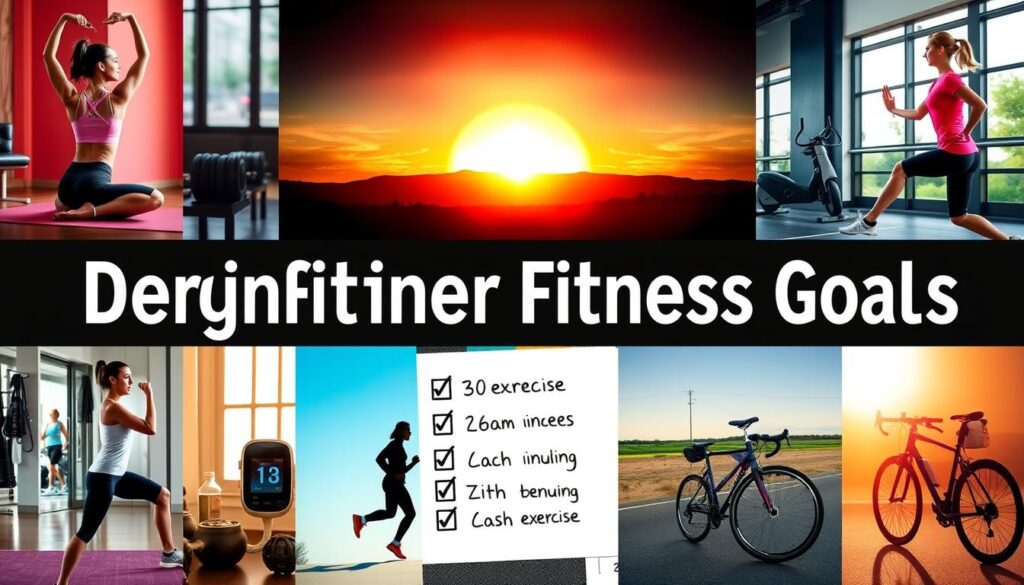Are you finding it hard to start your fitness journey? Or do you think exercise is only for the serious athletes? It’s time to rethink that and see how motivation can change your view on fitness. For newbies, getting into workouts can feel like a big challenge. But, knowing how motivation works can open up your fitness possibilities.
In this article, we’ll look at ways to boost fitness motivation for beginners. We’ll talk about finding your ‘why’ and setting goals you can reach. We’ll also cover why having someone to hold you accountable and making exercise fun are key. Studies show that enjoying your workouts and having a workout buddy can make you stick to it more.
Let’s dive into tips for beginners that will help you start this fitness journey with excitement.
Key Takeaways
- Identifying personal motivations enhances commitment to fitness.
- Enjoyment of workouts leads to better habits and sustained effort.
- Working out with a buddy can improve consistency and reduce stress.
- Varying workouts and planning rest days prevent burnout.
- Incorporating uplifting music can boost performance and motivation.
- Setting realistic goals keeps you motivated and engaged.
Understanding the Importance of Motivation in Fitness
Motivation is key for any fitness journey. For beginners, it’s essential to stay motivated to start and keep a routine. Knowing what drives you can help you stay active.
Intrinsic motivation, coming from personal satisfaction or self-improvement, lasts longer than external reasons. While losing weight or winning competitions can excite you first, personal reasons keep you going. Think about what makes your workouts enjoyable to stay consistent.
Setting clear goals helps keep you motivated. Break big goals into smaller ones to celebrate your progress. Seeing your achievements keeps you on track.
Keeping a positive attitude is vital during fitness challenges. View setbacks as chances to grow. Trying new workouts or setting new challenges also keeps things fresh and exciting.
Many things affect your ability to stick with a fitness plan, like motivation and personal interests. Understanding these helps you find a balanced approach. Embrace this as you start your fitness journey for a more enjoyable experience.
Find Your Why: The Power of Purpose
Understanding your motivation is key when starting your fitness journey. When you explore your personal fitness goals, the path becomes clearer. Clear goals guide you, keeping you focused and committed.
They inspire you on hard days and make reaching your goals easier.
Defining Personal Fitness Goals
Start with goals that match your personal dreams and values. Set SMART goals—Specific, Measurable, Achievable, Relevant, and Time-bound. These goals give you direction and help you track your progress.
Begin with small, achievable goals, like exercising for 15-20 minutes a few times a week. Gradually increase your activity to build momentum and confidence. Reaching these goals boosts positive behaviors and keeps you motivated.
The Role of Visualization in Motivation
Visualization is a powerful tool for fitness motivation. It prepares your mind for challenges by imagining the entire journey. Visualize yourself achieving your goals to build resilience.
This mental preparation helps you stay strong during tough times. It’s a key part of staying motivated, as advised in the article on fitness motivation for beginners.
Ditch the All-or-Nothing Mindset
Many beginners feel overwhelmed when starting their fitness journey. The pressure to do everything perfectly can lead to an all-or-nothing mindset. This mindset is harmful. Instead, use motivation tips for beginners that focus on gradual progress.
Setting realistic goals helps you stay on track for the long haul. Focus on small, achievable goals. This way, you can create a workout routine that fits your life.
Start Small: Setting Realistic Expectations
Success in fitness doesn’t come from sudden changes. About 80% of people give up their fitness plans in five months because of high expectations. Start with small, progressive steps.
Begin with short workouts and gradually increase their length and intensity. Even a five or ten-minute workout is better than nothing. Give yourself time to build strength and endurance.
Celebrate Small Wins for Continued Motivation
Recognizing and celebrating small victories is key. Around 60% of people lose motivation after setbacks. Focus on what you can control and celebrate small achievements.
Being flexible is important for long-term success. Share your goals with friends or family for support and encouragement. This can help you stay motivated.
| Action | Benefit |
|---|---|
| Set Short, Achievable Goals | Increased likelihood of sticking to your routine by 40% |
| Engage in Brief Workouts | Ensures consistency, contributing to long-term success |
| Celebrate Small Wins | Boosts motivation and reinforces positive habits |
| Share Intentions with Support System | Enhances accountability and provides encouragement |
| Maintain a Flexible Mindset | Increases chances of achieving fitness goals by 70% |
By using these strategies, you build a mindset focused on progress, not perfection. Every small success helps build your fitness journey. It turns initial motivation into lasting habits.
Fitness Motivation for Beginners: Making Exercise Enjoyable
Making exercise fun is key for beginners. Pick activities that bring you joy. This can change how you see working out. Instead of seeing it as a task, find exercises you love.
Try dancing, swimming, or hiking. These activities make fitness exciting. They boost your motivation and help you stay committed.
Choosing Activities You Love
Finding exercises you enjoy is key to sticking with it. When you love what you do, you’ll want to keep doing it. Here are ways to find your favorite activities:
- Try different classes at your local gym, like yoga or spinning.
- Join group fitness sessions for fun and support.
- Go for a jog or hike to enjoy nature.
Incorporating Fun and Variety into Your Routine
Keeping your workouts varied is great for fun and motivation. Changing your routine prevents boredom and burnout. Here are some tips:
- Try different workouts, like yoga and weight training.
- Try new classes or sports every month to challenge yourself.
- Change your workout playlists often to keep your energy up.
This keeps your enthusiasm high while you reach your fitness goals. Being flexible with exercise lets you grow and change as you go.
| Activity Type | Benefits | Frequency |
|---|---|---|
| Dancing | Boosts mood and coordination | 3 times a week |
| Swimming | Low-impact, full-body workout | 2 times a week |
| Hiking | Connects you with nature, builds endurance | Once a week |
| Weight Training | Strengthens muscles, enhances metabolism | 2-3 times a week |
The Power of Accountability: Buddy Up for Success
Accountability is key for beginners in fitness. Having a workout buddy with similar goals boosts motivation and adds social fun. A good partner helps turn goals into real actions.
Regular talks and updates on your goals make your partnership stronger. This way, you both stay on track together.
Finding the Right Workout Partner
To boost your motivation, find someone who fits your fitness path. Talking about your progress with friends or family can help find the right buddy. Online groups, like the Peloton Members Facebook group, offer great support.
Make sure to talk openly about your goals and plans. This ensures you both stay focused and motivated.
Using Group Classes as a Motivational Tool
Group classes are great for beginners. They create a sense of community and friendly competition. Celebrating your achievements keeps the excitement alive.
Trying different accountability methods, like virtual workouts or team challenges, keeps you motivated. If negative talk happens, it might be time to rethink your partnership. Online coaching can also provide personalized support and motivation.
Track Your Progress: Documenting Your Journey
Tracking your progress is key to documenting your fitness journey. It shows how far you’ve come and keeps you motivated. Using different methods helps you stay focused and reach your goals.
The Benefits of Keeping a Fitness Journal
A fitness journal has many benefits. It lets you record your workouts, feelings, and thoughts. Studies show journaling can boost success by 42%.
Here are some tips to make your journal effective:
- Set both long- and short-term goals.
- Record your workout stats and set benchmarks.
- Track your weight to see trends.
- Keep a food journal to understand your diet.
Using Technology for Progress Tracking
Fitness trackers are now essential in our digital world. They give you real-time data on activity, calories, and heart rate. Using both a journal and technology can lead to:
- More consistent workouts, with 70% seeing better regularity.
- More motivation from tracking progress, reported by 65%.
- Deeper self-awareness, helping you spot patterns in fitness.
The Pivo Pod Active is a great example. It lets athletes record their performance without using their hands. It has features like Body and Face Tracking. Using such tools can really help you see your progress over time.
Weekly, biweekly, or monthly photos can be a big motivator. Up to 80% of people reach their goals by tracking regularly.
Reward Yourself: The Psychology of Celebrating Achievements
It’s important to celebrate your achievements to boost your fitness motivation. A reward system can help you stay focused on your fitness goals. By recognizing small wins, you build a habit of linking action with positive feelings. This boosts your motivation and improves your overall well-being.
Setting Up a Reward System That Works
Creating a reward system that fits your goals can really help. Here are some tips to make a system that works for you:
- Set clear, achievable goals using the SMART criteria.
- Reflect on your progress daily or weekly.
- Give yourself both small and big rewards for your achievements.
- Keep track of your successes in a journal.
- Share your wins with friends or support groups for extra motivation.
Examples of Effective Rewards
Here are some rewarding ideas to help you stay on track:
| Milestone Achieved | Reward |
|---|---|
| Completing a week of workouts | New workout gear |
| Reaching a small weight loss goal | Dining out at your favorite restaurant |
| Consistent workout for a month | Spa day or massage |
| Completing a fitness challenge | Weekend getaway or adventure |
| Achieving a personal best | Fitness tracker or smartwatch |
Celebrating your achievements releases dopamine, making you want to keep going. This strengthens your motivation to reach your fitness goals. By following these tips, you can make your fitness journey rewarding and transformative.
Incorporate Nutrition: Fueling Your Body for Success
Nutrition is key for reaching fitness goals, even for beginners. Eating a balanced diet with carbs, proteins, and healthy fats keeps your energy up. This helps you do better in workouts and keeps you motivated.
The Connection Between Diet and Motivation
Knowing how diet and motivation are linked can really help your training. Eating whole foods full of vitamins and minerals helps your body work right for workouts. Eating regularly keeps your energy steady and boosts your metabolism, helping you reach your fitness goals.
- Balanced meals with enough carbs and proteins power your workouts.
- Drinking enough water boosts energy and helps digest food.
- Planning meals helps avoid unhealthy choices and keeps motivation up.
Hydration: A Key Component of Energy Levels
Drinking water is essential for health and performance. It helps control body temperature, carries nutrients, and removes waste. Drinking at least eight 8-ounce glasses of water a day is a good rule to follow.
When you’re doing hard or long workouts, you lose a lot of water. Drinking more water is needed. Eating foods with electrolytes like leafy greens, nuts, and low-fat dairy helps muscles work well and keeps the body balanced. Remember:
- Drink water and eat healthy carbs two hours before working out.
- For hard workouts, aim for 30 to 90 grams of carbs each hour.
- After working out, eat a mix of protein and carbs within 30-60 minutes for recovery.
Prioritize Rest: The Importance of Quality Sleep
Starting your fitness journey means understanding the role of sleep. Good sleep boosts your motivation and physical performance. Without enough rest, you might feel tired, be in a bad mood, and struggle to recover from workouts.
How Sleep Impacts Your Fitness Journey
Not getting enough sleep can harm your health, even leading to diabetes and heart disease. Almost one-third of Americans don’t get the needed seven hours of sleep each night. This can make you eat more the next day.
But, sleeping well helps you burn calories more efficiently. This makes sticking to your exercise plan easier.
Regular exercise also improves sleep quality. Activities like walking or biking on rest days help. Running three times a week is key for beginners to stay motivated.
Tips for Improving Sleep Quality
To sleep better, try these tips:
- Avoid caffeine before bed for better sleep.
- Go to bed and wake up at the same time every day.
- Do moderate exercise to improve sleep.
- Eat dinner early to help your body rest better.
- Get natural light during the day to set your body clock.
Good sleep habits help your muscles recover and keep you motivated. For tips on avoiding gym mistakes, check out this resource. Remember, rest is key for lasting energy, better performance, and a rewarding fitness journey.
Overcoming Common Setbacks in Your Fitness Journey
Starting a fitness journey is exciting, but it comes with challenges. You might hit plateaus, struggle with consistency, or face mental hurdles. Knowing how to deal with these obstacles is key to staying motivated.
Identifying and fixing workout problems can lead to lasting success. It’s all about understanding and overcoming these setbacks.
Identifying and Addressing Workout Pitfalls
Setbacks can come from many places, like life’s surprises or feeling like you’ve failed if you miss a workout. To beat these challenges, try these tips:
- Establish SMART goals—Specific, Measurable, Achievable, Relevant, and Time-bound objectives help you stay focused and maintain momentum.
- Mix up your routines to prevent stagnation. Trying new exercises or varying your routine can combat boredom and enhance motivation.
- Build a supportive network of friends, family, or online communities for encouragement and accountability.
- Work with a certified personal trainer to create a tailored exercise plan that suits your lifestyle and goals.
Maintaining Motivation During Plateaus
Hit a plateau? It’s normal. Focus on the good things about exercise, like more energy and better mental health. Break big goals into smaller steps for a sense of accomplishment.
Don’t get too down when you hit a bump. Remember, setbacks are part of the journey. Be kind to yourself and take breaks when needed. Try new things, like HIIT or walking meetings, to keep things interesting.
For more tips on overcoming fitness setbacks, learning about exercise psychology can help. The most important thing is to stay positive and adapt your approach.
Utilizing External Motivation Sources
External motivation is key in fitness. Podcasts and music make workouts better and more fun. They turn boring exercises into exciting ones.
Favourite tunes or podcasts boost your mood and energy. This helps you overcome challenges more easily. It keeps your mind active and focused.
How Podcasts and Music Can Boost Your Workout
Music or podcasts offer a mental break. They help you stay focused. Studies show upbeat music can improve your workout performance.
Motivational podcasts teach and inspire you. They make you feel part of a community. This multi-sensory experience connects you to your fitness goals.
Participating in Fitness Challenges and Events
Fitness challenges and events boost your motivation. The thrill of competition and social interaction are key. They give you the drive you need for long-term fitness goals.
These events connect you with others who have similar goals. They help you feel part of a group. You also get to set your own goals, adding to your motivation.
| External Motivation Sources | Benefits | Impact on Fitness |
|---|---|---|
| Podcasts | Informative, engaging, enhances enjoyment | Improves focus and commitment |
| Music | Boosts energy, encourages persistence | Increases workout performance |
| Fitness Challenges | Community support, goal setting | Enhances motivation through social engagement |
| Events | Shared experiences, accountability | Builds long-term commitment |
Building a Fitness Mindset for Beginners
Starting your fitness journey can be exciting. A growth mindset helps you face challenges and learn from mistakes. It keeps you motivated and resilient.
Seeing small improvements is key. It keeps you focused on your progress.
Developing a Growth Mindset in Fitness
A growth mindset in fitness means believing you can get better. For example, someone who started with handstands six years ago made great progress. They kept trying and stayed open to learning.
This mindset helps you set achievable goals. It shows that hard work and patience lead to success. A fixed mindset can hold you back, making it hard to see your progress.
Embracing the Journey over the Destination
Enjoying the journey is just as important as reaching your goals. Starting something new, like boxing, can be both challenging and rewarding. It’s about valuing every small step forward.
Sharing your experiences helps you grow. It keeps you focused on your goals. Celebrating small wins makes your journey more enjoyable.
| Mindset Type | Beliefs | Effects on Progress |
|---|---|---|
| Growth Mindset | Skills can be developed | Increased motivation and resilience |
| Fixed Mindset | Skills are innate and unchangeable | Limited progress and potentially |
Having a fitness mindset for beginners boosts your motivation. It turns challenges into learning opportunities. Your mindset shapes how you see obstacles and celebrate successes.
Conclusion
Starting your fitness journey is more than just a goal. It’s about finding your motivation, which is key for your mental health. Knowing why you want to get fit and setting achievable goals helps you move forward. Plus, finding exercises you enjoy makes it a positive habit.
Using tips for beginners can really help. Try making workouts with friends, tracking your progress, and setting clear goals. Life changes can make it hard to stick to your routine. But, understanding these challenges helps you stay motivated.
Don’t worry about setbacks; they’re part of the journey. Plan for them, and use support groups to stay on track. With the right mindset and strategies, you can build a lasting fitness routine. Your journey to better health is unique, and with the right approach, you can achieve it.
FAQ
What are some effective motivation tips for fitness beginners?
Setting clear goals is key. Find exercises you enjoy. Start small and celebrate each win. Having workout buddies or joining classes helps too.
Tracking your progress and rewarding yourself boosts motivation.
How can I maintain motivation during my fitness journey?
Regularly check your goals and stay with a supportive group. Focus on progress, not perfection. Mix up your workouts and celebrate milestones.
Why is it important to define personal fitness goals?
Clear goals give you direction and purpose. They motivate you through tough times. Seeing success helps keep you committed to your workouts.
What should I do when I hit a plateau in my fitness journey?
If you hit a plateau, find out why. Maybe you’re doing the same thing too much or not challenging yourself enough. Change your routine, set new goals, and try different exercises.
Connecting with others in fitness can also help.
How does nutrition influence my fitness motivation?
Nutrition is key for energy and performance. A balanced diet fuels your workouts. Drinking enough water is also important for staying motivated and energetic.
What are some fun exercises I can incorporate into my routine?
Try dancing, swimming, hiking, cycling, or sports leagues. Pick activities you like. Enjoying your workouts makes it easier to stay motivated.
How can I hold myself accountable in my fitness journey?
Having a workout buddy or joining classes helps. Fitness challenges can also keep you on track. Sharing your progress with others adds healthy competition and support.
What should I consider when rewarding myself for fitness achievements?
Choose small rewards that excite you. This could be new gear, a spa day, or a fun outing. Rewards should motivate you to keep going.
How can I improve my sleep quality to enhance fitness motivation?
Get a regular sleep schedule and create a calm sleep space. Avoid screens before bed. Good sleep boosts your mood, energy, and recovery, keeping you motivated.
What role does a growth mindset play in my fitness journey?
A growth mindset helps you see challenges as learning chances. It builds resilience and keeps you motivated. Focus on growing and improving, not just achieving.






